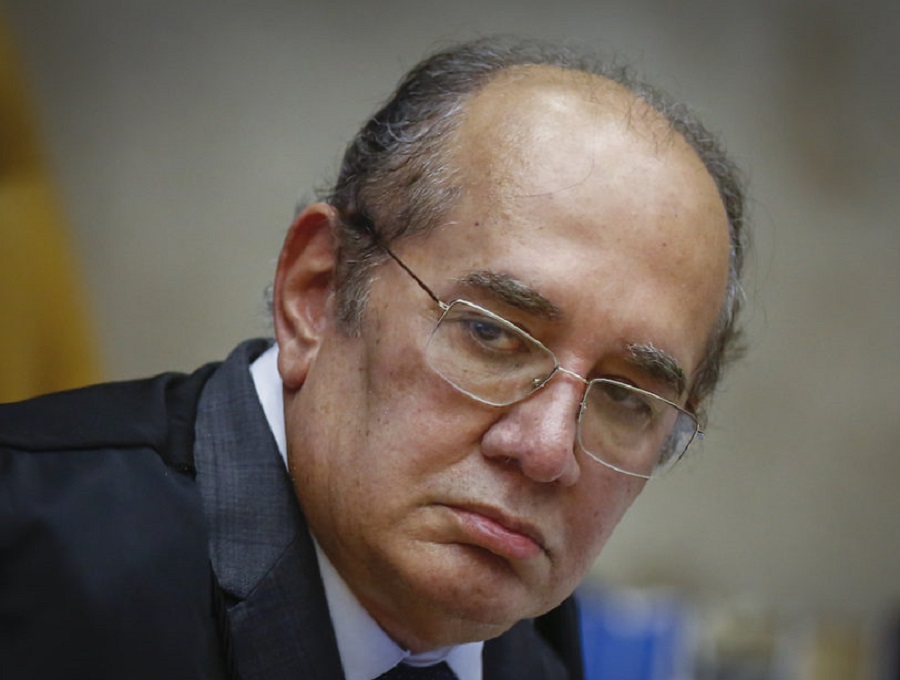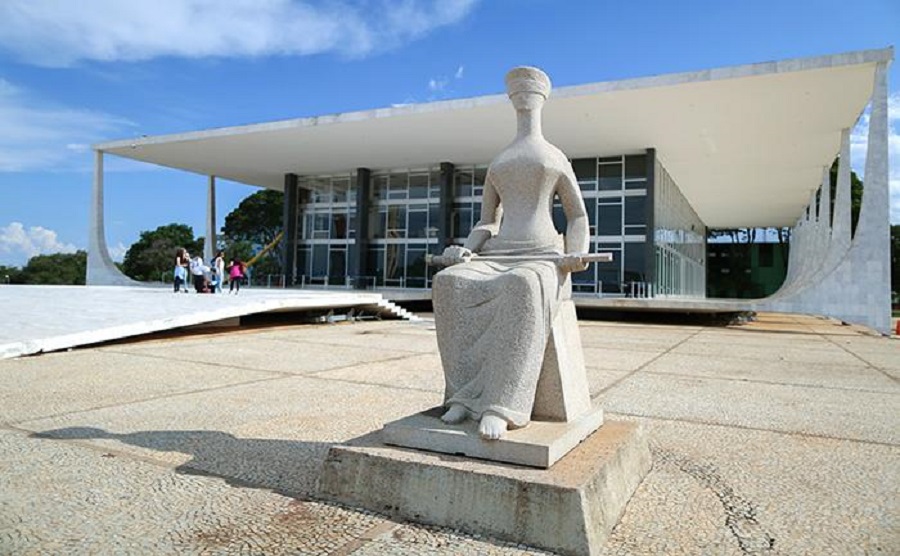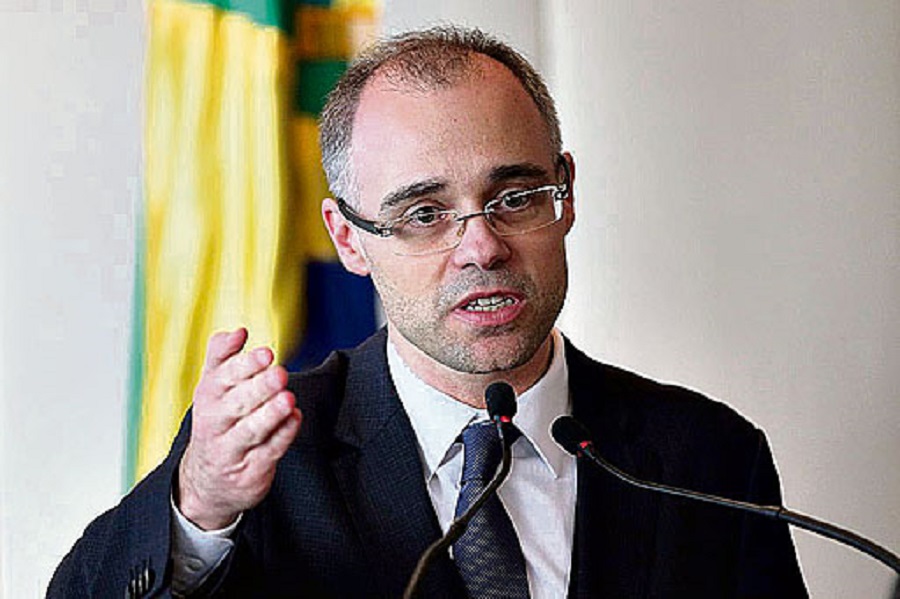RIO DE JANEIRO, BRAZIL – Federal Supreme Court (STF) justice Gilmar Mendes on Wednesday, April 7th, voted against the petition seeking a declaration of unconstitutionality of state and municipal decrees banning the holding of religious celebrations, such as masses and services, as measures to contain the spread of the novel coronavirus pandemic in Brazil.
The specific case under discussion deals with a lawsuit filed by the Social Democratic Party (PSD) against the governor of São Paulo João Doria, who, through Decree No. 65,563, instituted “emergency measures, of a temporary and exceptional nature, aimed at tackling the Covid-19 pandemic,” among them the prohibition of collective religious activities.

Mendes is the rapporteur of the lawsuit alleging Noncompliance with a Fundamental Precept (ADPF) and was the first STF Justice to vote on the matter in Wednesday’s session. He had already decided, as a single judge, against the petition two days earlier. After his vote, the trial was adjourned and will resume on Thursday when the other members of the Court will vote.
In the lawsuit, the PSD claims that the decree violates fundamental rights under the Federal Constitution, such as the right to religious freedom and freedom of worship. The position was supported in the STF plenary hearing by the Federal Solicitor General André Mendonça and the Federal Prosecutor General Augusto Aras
The debate comes four days after Justice Kássio Nunes Marques decided individually, in another action, brought by the National Association of Evangelical Jurists (Anajure), to permit in-person religious services.
The injunction granted by the newcomer to the court on the eve of Easter Sunday disturbed colleagues in the midst of the most critical moment of the country’s health crisis – only yesterday, 4,211 deaths by Covid-19 were registered and made the issue quickly enter the full court’s agenda.
Reading his opinion, Gilmar Mendes harshly criticized the positions of André Mendonça, Augusto Aras, and Justice Nuno Marques, arguing that the alleged rights associated with religious freedom, especially when in a restricted aspect of the exercise of worship, cannot override other constitutional norms, especially those concerning the rights to health and life.
“Did the São Paulo state decree somehow prevent citizens from answering only to their own conscience in religious matters? Does the temporary restriction on attending public religious events covertly translate or promote any religion? Does the banning of temples and similar buildings bring about individuals’ coercive conversion to this or that religious view? The answer seems to me to be definitely negative,” stated the magistrate.

“A constitutional order that protects a plurality of legal goods cannot coexist with claims made in court, the practical effect of which, if accepted, would be to make a certain legal situation absolute, allegedly presented as representative of a fundamental right. The propensity of fundamental rights occurs in an inescapable context of normative multiplicity, vis a vis the principle of the unity of the Constitution, which in this case requires harmonization, practical concordance, as it is not admitted that the incidence of a constitutional rule annuls the normativity of another of equal hierarchy,” he argued.
During the reading of his vote, which lasted about 1h40, Mendes called attention to the temporary nature of the decision and referred to a series of studies and decisions of international courts that were based on the perception that religious meetings represented a high risk of spreading the Sars-CoV-2 virus, due to the long permanence of the faithful in closed places, the interaction between those present, and singing.
The magistrate also emphasized the decision taken almost a year ago by the Supreme Court, which guaranteed states’ and municipalities’ autonomy in the adoption of measures to combat the coronavirus, including restrictions on religious activities. In the rapporteur’s evaluation, if it were not for this decision, “our health situation would probably be even worse.”
“Given the eloquence of the facts and the gravity of the situation, the narrative that the temporary ban on collective events in religious temples has some anti-Christian motive migrates into the realm of the surreal,” he said.
“Even though any intimate vocation may lead to an individual choice to surrender his life for his religion, the Federal Constitution of 1988 does not seem to protect a fundamental right to death. This subtle form of eroding the constitutional normativity should be increasingly scrutinized by the Federal Supreme Court, especially if the abuse of the right of action comes under a pharisaical guise, using the name of God to support the right to death,” he concluded.

Attacks on Mendonça
At the beginning of the session, Solicitor General André Mendonça argued that the ban on churches and temples’ activities was disproportionate and unconstitutional, and also criticized policies such as the establishment of curfews by city halls and state governments.
“This is not a debate about life and death. Every Christian knows and is aware of the risks of this disease and knows that he needs to take care and caution in this disease’s face. This is not a political discussion. We all defend life in this discussion,” he said.
“We are dealing with the following discussion: in times of public calamities, does the Constitution prevail, or do other rules apply?
“The Brazilian Constitution disagrees with the absolute closure and prohibition of religious activities. It does not condone discrimination against public manifestations of faith. So much so that the Constitution’s exceptional remedies do not even admit this type of measure that is being adopted regionally. There is no Christianity without community life. There is no Christianity without the house of God. There is no Christianity without the Lord’s Day. This is why true Christians are never willing to kill for their faith but are always willing to die to ensure freedom of religion and worship,” he said.
During his oral argument, Mendonça also compared the overcrowding in public transportation and the permission for other activities to operate with the restrictions imposed on worship services and masses.
“Today we go to catch a plane, we take caution when entering the airport, in the line at the airport lobby, we keep our distance and sit like a sardine can, one glued to the other, inside the planes. Were face-to-face business meetings prevented? Did the governors close the unions for their meetings? Did they close the associations? Did they close political parties? Why only the churches? Why this discrimination?” he questioned.
The speech was treated with irony by Justice Gilmar Mendes, who demanded actions from Mendonça, who, before returning to the AGU, commanded the Ministry of Justice and Public Safety. Mendonça is one of the names cited for appointment to STF seat that will become vacant in July upon the mandatory retirement of Justice Marco Aurélio Mello at age 75.

“When the minister speaks of the problems of transportation in Brazil (…), I could have understood that he would now have come to the rostrum of the Supreme Court from a trip to Mars. And he was detached from any institutional responsibility in any matter in Brazil. But I checked here, googled, as the younger ones say, and found out that he was Minister of Justice until recently and had institutional responsibilities, including proposing measures. The federal government is responsible for legislating guidelines for the national policy on traffic and transport. It seems to me that there is a certain delirium in this general context. Each one of us must assume our responsibility. This must be made very clear. We must not fool anyone because the fools have been left out of court,” said the magistrate.
A tense atmosphere
The atmosphere in the trial was already tense. Before Justice Mendes’ vote, attorney Luiz Cunha, who represents the PTB party, used harsh words to criticize temples and churches’ closing. “For those who will vote today for the closing of the house of the Lord, I quote Luke 23, verse 34: ‘Then he lifted his eyes to heaven and said, Father forgive them, for they know not what they do,'” Cunha said.
As soon as he retook the floor, the STF Presiding Justice, Luiz Fux, replied that such a reproach could not be applied to the members of the Court, who, in his words, had not failed to act during the crisis.
“This is a matter that imposes a tragic choice on us, and we have enough responsibility to face it. Our mission as constitutional judges, besides guarding the Constitution, is to fight for life and hope,” he countered.
Source: Infomoney

